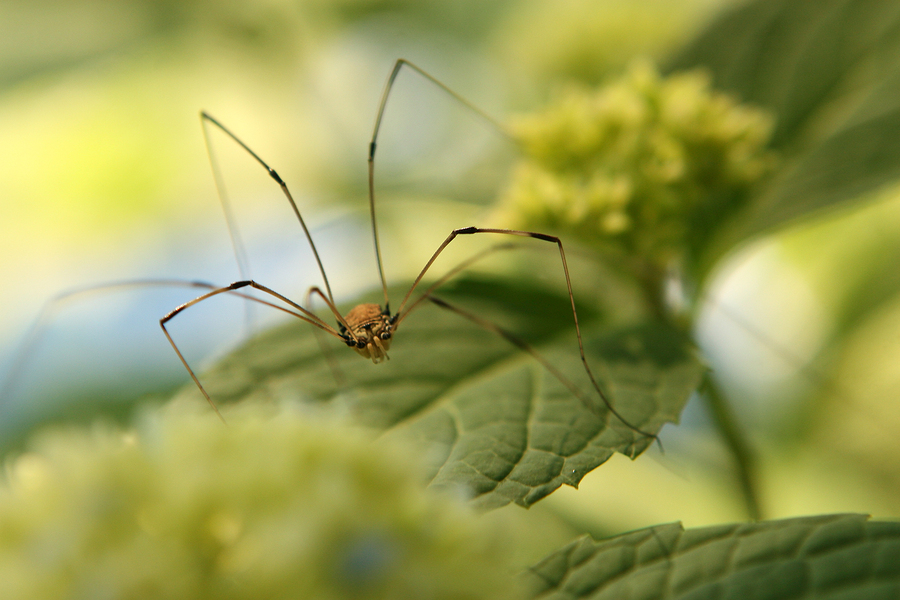Common Pest Myths That Should Be Exterminated From Your Mind
- Details
 Having unwanted pests in your home can put you and your family at risk for unwanted insect bites and possibly the spread of illness. What’s even more dangerous is being misinformed about these uninvited visitors, causing you to treat the problem incorrectly and possibly put yourself at an even higher risk for infestation. That’s why the Eagle Pest Services team has put together this list of common pest myths that should be exterminated from your mind immediately!
Having unwanted pests in your home can put you and your family at risk for unwanted insect bites and possibly the spread of illness. What’s even more dangerous is being misinformed about these uninvited visitors, causing you to treat the problem incorrectly and possibly put yourself at an even higher risk for infestation. That’s why the Eagle Pest Services team has put together this list of common pest myths that should be exterminated from your mind immediately!
Mosquitoes
When it comes to pest myths, some of the most common ones are about mosquitoes. While these pesky insects are seemingly unavoidable and very common in the summertime, there are still a lot of myths that surround them. Here are a few:
- MYTH: All mosquitoes bite: This is false. Only female mosquitoes need to drink blood. This is because female mosquitoes utilize the proteins in blood to create and lay their eggs while males typically obtain nutrients from flowering plants.
- MYTH: Mosquitoes are attracted to “sweeter” blood. This is a false statement. Mosquitoes are attracted to the carbon dioxide that we breathe out, heat from our bodies and the lactic acid we secrete. It’s thought that some blood types may secrete more lactic acid, causing a stronger attraction of mosquitoes, but the notion that one’s blood is sweeter than another is completely false.
- MYTH: Citronella candles will protect you completely. This is mostly false. The strong scent of citronella does not “repel” mosquitoes but rather helps mask the scent of humans in the area. If a mosquito is close enough, it will still detect the human’s presence and bite regardless of the citronella scent.
Stinging Insects
From bees to yellow jackets and wasps, there are tons of myths out there about stinging insects. While many of them result in a lack of knowledge about the differences between the many types of stinging insects, here are a select few that we’ve found are most common.
- MYTH: All bees sting. This is one of the most common misconceptions about bees. Only female bees can sting and even then, they will not sting unless they feel there is a danger to their nest. That being said, many species of bees do not typically sting at all despite having a stinger on their bodies. Therefore a bee wandering by you on your back patio is not likely to strike for no reason. Wasps and yellow jackets, on the other hand, can be very temperamental and are far more likely to sting than a bee.
- MYTH: Wasps are a type of bee. This is false. Wasps, while in the same scientific order as bees, are not bees at all. Rather they are flying carnivores, hunting other insects for nutrients while bees are vegetarians feeding on pollen and nectar from flowers.
- MYTH: All bees live in hives. This is largely false because most bees are not social creatures. When we think of bees, we immediately think of honey bees working tirelessly during the day and returning to the hive at night to rest. While honey bees do act this way, it’s important to note that only 10% of all bees are “social” like honeybees. The rest are solitary insects, often nesting in the ground or at a different location with each day’s end.
Spiders
Spiders can be incredibly terrifying if found in the home. That’s why it’s important to stay well-informed about spiders and the many myths that surround them so you can react to their presence accordingly.
- MYTH: Granddaddy longlegs are extremely venomous spiders. This is absolutely false. In fact, we aren’t even sure where this myth originated. To start with this myth debunking, we should point out that granddaddy longlegs, while closely related, are not even technically spiders. They are more accurately called harvestmen because they are mostly scavengers and rarely hunt, unlike their predatory spider cousins.
- MYTH: Spiders are insects. Believe it or not, this is FALSE! Spiders are related to insects just as much as birds are related to fish. Spiders are classified in the Class Arachnida, insects to the Class Insecta.
- MYTH: You are never more than three feet from a spider. This myth originated in a 1995 article from a renowned arachnologist, Norman Platnick. Since then, it has been used repeatedly to instill fear of spiders in news media and other scientific publications. The fact of the matter is that this is absolutely false. The distance to the nearest spider depends directly on where you are. If you’re in the forest, there’s likely a spider right next to you. If you’re standing in the middle of a large parking lot, it may be 100 feet away.
Bed Bugs
Bed bugs are a particularly difficult pest to manage as they can be incredibly persistent. That’s why it’s crucial that you are educated about the facts and myths that exist surrounding bed bugs.
- MYTH: Bed bugs often spread diseases. This is not the case. While bedbugs certainly take a psychological toll on their victims, they do not typically spread diseases like other blood-sucking insects such as ticks and mosquitoes.
- MYTH: Bed bugs only come out at night. This myth about bed bugs often leaves people with a false sense of security. They feel that if they leave the lights on and sleep with an eye mask, the bedbugs won't come out and bite them in the nighttime. This is false. Bed bugs are nocturnal creatures and for that reason, you are more likely to be bitten during the nighttime. That being said, they will come out and bite whenever they detect the scent of their next blood meal.
- MYTH: Bed bugs are too small to see with the naked eye. This is false. An adult bed bug can be 4.5 mm in diameter. Their eggs and nymphs can be around 2mm wide and can all be seen with the naked eye if you know how to look for them.
As you can see, there are numerous misconceptions out there about pests. That’s why it’s more important than ever to hire a pest management team that knows the ins and outs of pest control and understands all of the pest control myths out there. Eagle Pest Services has just the team for you. We work tirelessly to ensure that your home or business is pest-free and that you are well-educated so you can avoid another infestation. Call us today to schedule a consultation by dialing 1-(866) 281-1822.





